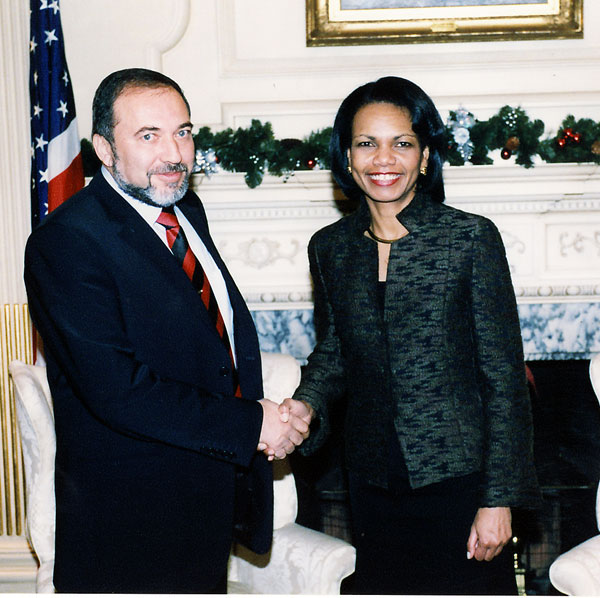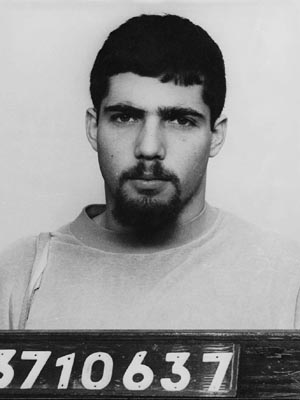|
2019–2022 Israeli Political Crisis
The 2019–2022 Israeli political crisis is a period of political instability in the State of Israel, in which five Knesset snap elections were held in a span of nearly four years: in April 2019, September 2019, March 2020, March 2021 and November 2022. In the early phase of the crisis, the popular phrasing of the core division within the parties and the public was "only Bibi" (nickname for Benjamin Netanyahu) or "only not Bibi". This stalemate was created due to the refusal of the liberal wing of the parliament to form a coalition with Netanyahu, while the Likud party – the prominent party of the conservative wing – refused to remove Netanyahu from the party's leadership. The rest of the conservative-wing parties refused to form a coalition without Netanyahu and the Likud. None of the wings were able to form a coalition by themselves, due to the tie-breaking parliament seats held by the Arab parties. Some parliament members from Jewish parties (both wings) and Arab ... [...More Info...] [...Related Items...] OR: [Wikipedia] [Google] [Baidu] |
Politics Of Israel
Politics in Israel are dominated by Zionist parties. They traditionally fall into three camps, the first two being the largest: Labor Zionism, Revisionist Zionism and Religious Zionism. There are also several non-Zionist Orthodox religious parties and non-Zionist secular left-wing groups, as well as non-Zionist and anti-Zionist Israeli Arab parties. Political conditions Golda Meir, Prime Minister of Israel from 1969 to 1974, once joked that "in Israel, there are 3 million prime ministers". The particular version of proportional representation used, in which the whole country is a single constituency, encourages the formation of a large number of political parties, many with very specialized platforms, and often advocating the tenets of particular interest groups. The prevalence of similar seat totals among the largest parties means that the smaller parties can have strong influence disproportionate to their size. Due to their ability to act as kingmakers, the smalle ... [...More Info...] [...Related Items...] OR: [Wikipedia] [Google] [Baidu] |
Benjamin Netanyahu
Benjamin "Bibi" Netanyahu (; ; born 21 October 1949) is an Israeli politician who served as the ninth prime minister of Israel from 1996 to 1999 and again from 2009 to 2021. He is currently serving as Leader of the Opposition and Chairman of Likud – National Liberal Movement. Netanyahu is the longest-serving prime minister in the country's history, having served for a total of 15 years. He was also the first prime minister to be born in Israel after its Declaration of Independence. Born in Tel Aviv to secular Jewish parents, Netanyahu was raised both in Jerusalem, and for a time in Philadelphia, Pennsylvania, in the United States. He returned to Israel in 1967 to join the Israel Defense Forces. He became a team leader in the Sayeret Matkal special forces and took part in several missions, achieving the rank of captain before being honorably discharged. After graduating from the Massachusetts Institute of Technology, Netanyahu became an economic consultant for the Bo ... [...More Info...] [...Related Items...] OR: [Wikipedia] [Google] [Baidu] |
Israeli Defense Minister
The Ministry of Defense ( he, מִשְׂרַד הַבִּטָּחוֹן, Misrad HaBitahon, Ministry of Security, acronym: he, משהב"ט) of the government of Israel, is the governmental department responsible for defending the State of Israel from internal and external military threats. Its political head is the Defense Minister of Israel, and its offices are located in HaKirya, Tel Aviv. The Ministry of Defense oversees most of the Israeli security forces, including the Israel Defense Forces (IDF), Israel Military Industries (IMI), and Israel Aerospace Industries (IAI). The MOD was established when the British Mandate of Palestine ended, and the British Army departed Palestine and the State of Israel was formed. This ended the rag-tag militia units during British rule and gave way to the formal defense of the Jewish state. Minister of Defense The Defense Minister of Israel ( he, שַׂר הַבִּטָּחוֹן, ''Sar HaBitahon'', ''lit.'' Minister of Security) he ... [...More Info...] [...Related Items...] OR: [Wikipedia] [Google] [Baidu] |
Avigdor Lieberman
Avigdor Lieberman (, ; russian: Эве́т Льво́вич Ли́берман, Evet Lvovich Liberman, ; born 5 June 1958) is a Soviet-born Israeli politician serving as Minister of Finance since 2021, having previously served twice as Deputy Prime Minister of Israel from 2006 to 2008 and 2009 to 2012. Lieberman entered the Knesset in 1999, and has served in numerous roles in the government, including as Minister of National Infrastructure, Minister of Transportation, and Minister of Strategic Affairs. He served as Deputy Prime Minister under Prime Ministers Ehud Olmert and Benjamin Netanyahu. He served under Netanyahu as Minister of Foreign Affairs from 2009 to 2012 and 2013 to 2015 and as Minister of Defense from 2016 to 2018. On 14 November 2018, he resigned as Defense Minister because of a ceasefire in Gaza which he characterized as "surrendering to terror." He is the founder and leader of the secular nationalist Yisrael Beiteinu (Israel Our Home) party, whose ... [...More Info...] [...Related Items...] OR: [Wikipedia] [Google] [Baidu] |
Yisrael Beiteinu
Yisrael Beiteinu ( he, יִשְׂרָאֵל בֵּיתֵנוּ, russian: Наш Дом Израиль, lit. ''Israel Our Home'') is a secularist, nationalist right-wing political party in Israel. The party's base was originally secular Russian-speaking Israelis, although support from that demographic is in decline. The party describes itself as "a national movement with the clear vision to follow in the bold path of Zev Jabotinsky", the founder of Revisionist Zionism. It has primarily represented immigrants from the former Soviet Union, although it has attempted to expand its appeal to more established Israelis. It takes a hard line towards the peace process and the integration of Israeli Arabs. Its main platform includes a recognition of the two-state solution, the creation of a Palestinian state that would include an exchange of some largely Arab-inhabited parts of Israel for largely Jewish-inhabited parts of the West Bank. Yisrael Beiteinu maintains an anti-clerical man ... [...More Info...] [...Related Items...] OR: [Wikipedia] [Google] [Baidu] |
Thirty-fourth Government Of Israel
The thirty-fourth government of Israel, also known as the ''Fourth Netanyahu Government'', was the government of Israel, headed by Prime Minister Benjamin Netanyahu between 2015 and 2020. It was formed after the March 2015 Knesset election. The coalition that made up the government, consisting of Likud, United Torah Judaism, Shas, Kulanu and the Jewish Home, was submitted to the President of Israel just before the deadline on 6 May 2015. Government ministers were introduced, approved by the Knesset and sworn in on 14 May. Deputy ministers were sworn in on 19 May. On 29 December 2018, the newly-formed New Right party became a coalition partner, after splitting from the Jewish Home. Between them, the coalition parties held 61 of the 120 seats in the Knesset. The elections that led to the formation of the government were a result of events on 2 December 2014, when Netanyahu dismissed two of his ministers, whose parties' members subsequently resigned from the 33rd government, dis ... [...More Info...] [...Related Items...] OR: [Wikipedia] [Google] [Baidu] |
2015 Israeli Legislative Election
Early elections for the twentieth Knesset were held in Israel on 17 March 2015. Disagreements within the governing coalition, particularly over the budget and a "Jewish state" proposal, led to the dissolution of the government in December 2014. The Labor Party and Hatnuah formed a coalition, called Zionist Union, with the hope of defeating the Likud party, which had led the previous governing coalition along with Yisrael Beiteinu, Yesh Atid, The Jewish Home, and Hatnuah. The incumbent Prime Minister, Benjamin Netanyahu of Likud, declared victory in the election, with Likud picking up the highest number of votes. President Reuven Rivlin granted Netanyahu an extension until 6 May 2015 to build a coalition when one had not been finalized in the first four weeks of negotiations. He formed a coalition government within two hours of the midnight 6 May deadline. His Likud party formed the coalition with the Jewish Home, United Torah Judaism, Kulanu, and Shas, with the ba ... [...More Info...] [...Related Items...] OR: [Wikipedia] [Google] [Baidu] |
List Of Members Of The Twentieth Knesset
The members of the 20th Knesset were elected on 17 March 2015 and sworn in on 31 March 2015. Members of the Knesset Replacements The twentieth Knesset had the highest number of replacements in Israeli history, with at least 27 members leaving mid-term. Eleven of those left due to the Norwegian Law. See also *Thirty-fourth government of Israel The thirty-fourth government of Israel, also known as the ''Fourth Netanyahu Government'', was the government of Israel, headed by Prime Minister Benjamin Netanyahu between 2015 and 2020. It was formed after the March 2015 Knesset election. T ... References External linksCurrent Knesset Members of the Twentieth KnessetKnesset website {{Knesset members 20 ... [...More Info...] [...Related Items...] OR: [Wikipedia] [Google] [Baidu] |
Thirty-seventh Government Of Israel
The thirty-seventh government of Israel is the current cabinet of Israel, formed on 29 December 2022 following the Knesset election on 1 November 2022. The coalition government consists of six parties— Likud, United Torah Judaism, Shas, Religious Zionist Party, Otzma Yehudit, and Noam—and is led by Benjamin Netanyahu, who has taken office as the Prime Minister of Israel for the sixth time. Background The right-wing bloc of parties, led by Benjamin Netanyahu, known in Israel as the national camp, won 64 of the 120 seats in the elections for the Knesset, while the coalition led by the incumbent prime minister Yair Lapid won 51 seats. The new majority has been variously described as the most right-wing government in Israeli history, as well as Israel’s most religious government. Shortly after the elections, Lapid conceded to Netanyahu, and congratulated him, wishing him luck "for the sake of the Israeli people". On 15 November, the swearing-in ceremony for the newly el ... [...More Info...] [...Related Items...] OR: [Wikipedia] [Google] [Baidu] |
National Camp
In Israeli politics, the national camp ( he, המחנה הלאומי) or right-wing bloc is an informal coalition of nationalist and right-wing, religious conservative political parties that since 1977 has frequently co-operated to form governments. The coalition is led by Likud, and includes parties to its political right as well as religious parties. Generally, the two ultra-Orthodox parties (Shas and the United Torah Judaism alliance) align with Likud. In the past, the coalition has included the National Religious Party, the National Union, Gesher, Tkuma, The Jewish Home, the New Right, Yisrael Beiteinu (until late 2019) and Zehut. Right-wing bloc Following the September 2019 Israeli legislative election, Israeli Prime Minister Benjamin Netanyahu formed a "right-wing bloc" for the purposes of coalition negotiations, consisting of Likud, Shas, United Torah Judaism and Yamina, that would support Netanyahu as Prime Minister. In February 2021, Yamina left the bloc to pur ... [...More Info...] [...Related Items...] OR: [Wikipedia] [Google] [Baidu] |
Yair Lapid
Yair Lapid ( he, יָאִיר לַפִּיד, transliterated: , ; born 5 November 1963) is an Israeli politician and former journalist who has been serving as the 14th prime minister of Israel since 1 July 2022. He previously served as the alternate prime minister of Israel and minister of Foreign Affairs from 2021 to 2022. Lapid is the chairman of the centrist Yesh Atid party, and was Leader of the Opposition from 2020 to 2021, and Minister of Finance from 2013 to 2014. Before entering politics in 2012, Lapid was an author, TV presenter and news anchor. The centrist Yesh Atid party, which he founded, became the second-largest party in the Knesset by winning 19 seats in its first legislative election in 2013. The greater-than-anticipated results contributed to Lapid's reputation as a leading centrist. From 2013 to 2014, following his coalition agreement with Likud, Lapid served as Minister of Finance under Prime Minister Benjamin Netanyahu. In 2013, Lapid ranked first on the ... [...More Info...] [...Related Items...] OR: [Wikipedia] [Google] [Baidu] |
Naftali Bennett
Naftali Bennett ( he, נַפְתָּלִי בֶּנֶט, Transliterated: , ; born 25 March 1972) is an Israeli politician who served as the 13th prime minister of Israel from 13 June 2021 to 30 June 2022, and as the 3rd Alternate Prime Minister of Israel from 1 July to 8 November 2022. Bennett served as the leader of the New Right party from 2018 to 2022, having previously led The Jewish Home party between 2012 and 2018. Born and raised in Haifa, the son of immigrants from the United States, Bennett served in the Sayeret Matkal and Maglan special forces units of the Israel Defense Forces, commanding many combat operations, and subsequently became a software entrepreneur. In 1999, he co-founded and co-owned the US company Cyota. The company was sold in 2005 for $145 million. He has also served as CEO of Soluto, an Israeli cloud computing service, sold in 2013 for a reported $100–130 million. Bennett entered politics in 2006, serving as Chief of Staff for Benjamin Netanya ... [...More Info...] [...Related Items...] OR: [Wikipedia] [Google] [Baidu] |




.jpg)
.jpg)

.jpg)